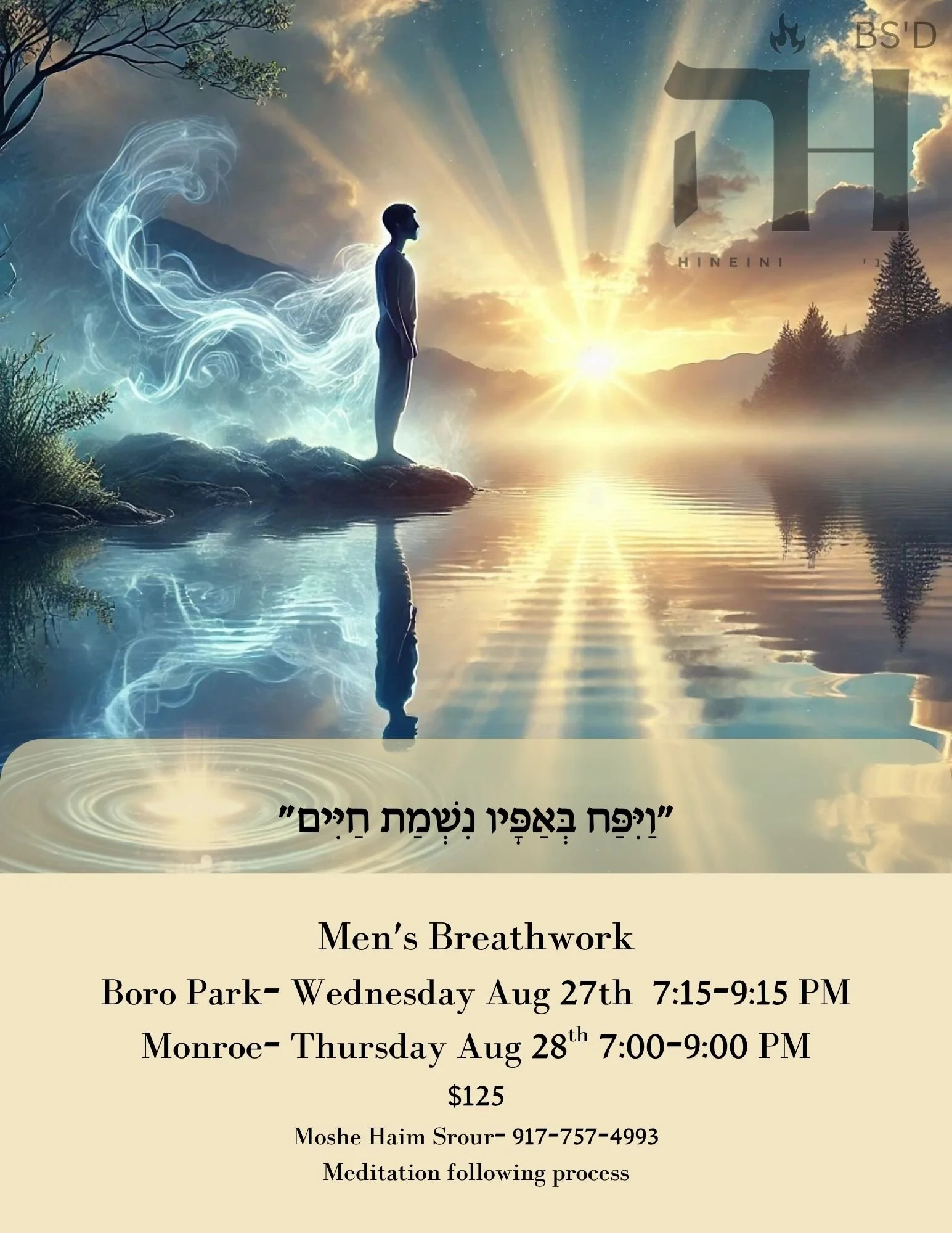Between the margins - 5-Princes and Thieves
BS’D
Shalom!
In something new and old, I’ll share the different meanderings my mind goes through while learning and meeting the Daf.
Torah Tavlin and I am one of those that find themselves sick sometimes.
Less Than a Peruta, More Than a Life
For years, we circle the same question: do the little things matter? Do the small comments, the fleeting gestures, the half-second of pain we cause — are they written anywhere?
Today’s Daf (Avodah Zarah 71b) shakes you awake:
אָמַר רַבִּי יוֹחָנָן: בֶּן נֹחַ נֶהֱרָג עַל פָּחוֹת מִשָּׁוֶה פְּרוּטָה, וְלֹא נִיתָּן לְהִישָּׁבוֹן.
A Ben Noach is executed even for stealing less than a peruta, and there is no restitution.
Why? The Gemara answers:
מִשּׁוּם דְּצַעֲרֵיהּ לְיִשְׂרָאֵל.
Because he caused a Jew distress.
Even if the money is worthless, the pain isn’t. A flicker of disrespect, a second of hurt — that itself carries the full weight of judgment.
And the Gemara takes it further:
בָּא חֲבֵירוֹ וּנְטָלָהּ מִמֶּנּוּ — נֶהֱרָג עָלֶיהָ.
If another Ben Noach comes along and takes it too, he also is executed for it.
Even though it was already stolen, the second act still counts. There is no “it was already gone.” Every choice is its own cruelty, every act leaves a mark. Broken Noahide laws lead to death. Theft by a ben noach leads to death and there is no need to give the money back.
Why so harsh, and why no restitution?
Rashi explains: since the Ben Noach is executed, he is exempt from paying — kam lei b’derabba minei (the greater penalty cancels the lesser).
Tosafot press: but why should that be? Why for a Jew is there a category of restitution, but for a Ben Noach there is not?
For a Jew: less than a peruta is automatically forgiven. It doesn’t “exist” halachically, because mechila erases it.
For a Ben Noach: he is not bar mechila. There’s no built-in assumption of forgiveness. Every act of theft stands in full force.
Tosafot therefore reject Rashi’s technical answer. Instead, they root it in mechila itself. For Yisrael, forgiveness can dissolve the tiniest wrong; for a Ben Noach, there is no such release.
That means the space between “it matters” and “it doesn’t matter” isn’t indifference — it’s forgiveness.
Mechila is literally what stands between life and death.
Without it, everything is exact; every act counts in full.
And maybe it’s not a stretch to say this: forgiveness is the very emanation of life itself.
To be bar mechila, to live in a world where things can be waived, where not every act is carved in stone, is to be connected to life.
That is part of the dignity of being Yisrael: that we are bar mechila. Not just that we can forgive others, but that our very halachic and spiritual reality assumes forgiveness. It’s a gift to deepen into — that life itself is not only measured by exactness, but softened, elevated, and sustained by the possibility of mechila.
This really connected to something I heard two days ago, I was listening to Rabbi Aryeh Levi, Rosh Yeshivat HaNegev from Schar Sachir, speak on a panel. He told a story about Rav Eliyahu Lopian that brought this Daf into sharper light.
At the time, people didn’t really understand how Rav Lopian — a product of the calm, precise Mussar of Kelm — could stand up and give a sicha in Chevron Yeshiva, the fiery bastion of Slabodka. But he did. And the way he spoke became a story in itself.
In Shmuel II, perek 12, Natan the prophet gives David HaMelech a parable:
A wealthy man with countless sheep seizes the lone lamb of a poor man.
David’s response was striking:
“Ben mavet ha’ish ha’oseh zot — this man deserves death! And he shall pay fourfold for the lamb.”
But where do we ever see that theft carries the death penalty? Torah law is clear: a thief pays back kefel, arba’ah, chamisha. No death.
Radak — via Abarbanel
The Abarbanel asks this question and brings the Radak’s answer:
“כי אכזריותו נענש במיתה. ואמרו חכמינו ז"ל (יומא פ"ב כ"ב ע"ב) כי בעונש זה לקה בארבעה — הילד ואבשלום אמנון ותמר. ונתן הטעם על מה שאמר שהוא בן מות, באמרו על אשר לא חמל, כי בהעדר חמלתו על הרש ובעבור תכונתו הרעה והאכזריות הזה אין ראוי גם כן לחמול עליו והוא חייב מיתה.”
“It was because of his cruelty that he was punished with death. And our Sages taught (Yoma 22b) that David himself was struck with this punishment through four tragedies — the infant, Avshalom, Amnon, and Tamar. The reason he said ‘he is liable to death’ is because ‘he did not have mercy’: since he showed no compassion on the poor man, and because of this evil and cruel nature, he too is not worthy of compassion, and he is liable to death.”
According to Radak (via Abarbanel), it isn’t the theft that carries death — it’s the cruelty magnified by power.
Rav Lopian’s Question
Rav Lopian sharpened the point: Where do we see that a melech is chayav mitah for theft?
His answer: this is mishpat hamelech.
A Beit Din can only obligate what the Torah prescribes.
But a king has authority to go further — to judge an act in its broader moral scope.
So David, as king, ruled: when one with abundance takes without mercy, when a king himself steals, the act is chayav mitah.
Rav Lopian sharpened the point:
Where do we ever see that a melech is chayav mitah for theft?
The Torah itself does not prescribe capital punishment for stealing. So how could David HaMelech say “בן מות האיש” — this man is liable to death?
Rav Lopian’s answer: this is the realm of Mishpat HaMelech
.
A Beit Din is bound entirely by the Torah’s legal code. It cannot add to punishments, cannot create new categories of liability. For theft, the maximum the Torah empowers a court to impose is repayment — kefel (double), arba’ah or chamisha (four- or fivefold) depending on the case. The justice of Beit Din is precise, fixed, and delimited
.
But a king is entrusted with something different: the preservation of justice, morality, and the dignity of society itself. This is mishpat hamelech.
So when David declared that the man in Natan’s parable was ben mavet, it was not because the Torah’s din made theft into a capital crime.
It was because, in the broader moral scope of kingship, the act of one with abundance taking from one who has almost nothing, without compassion, is more than a technical theft — it is cruelty of such magnitude that it undermines the very justice of the kingdom. A king must be able to respond to such acts not just with repayment, but with ultimate accountability
.
In Rav Lopian’s words, David was not speaking merely as a posek din, applying the black-letter law, but as a melech, embodying mishpat hamelech. And within that role, cruelty magnified by power can carry the weight of death.
e.
Rav Lopian’s Clap
So far, a strong lomdishe idea. Mioshpat hamelech carries its own weight
But then Rav Lopian gave the clap and revealed the heart of the matter: (Paraphrased)
“Atem bnei melachim — you are children of kings! HaMelech gonev — mot yumat. “
What I understand from the rosh yeshiva was that according to the gadlut ha’adam, the greatness of man, the king can add so we must know our worth, we must know that our worth carries weight.
In other words: if a king is held to such a high standard, so are you. If cruelty from one with abundance is death-worthy, then your choices too, as children of kings, carry infinite weight.
And he said it in Chevron — not in the calm tones of Kelm, but in the fiery style of Slabodka, where the teaching of gadlut ha’adam — the greatness of man — was the lifeblood.
Rav Aryeh Levi said: whenever he remembers this sicha, he wonders — what if every yeshiva bochur heard this?
Because the question isn’t just: what’s the din of a king who steals?
The real question is: how do you speak to a bochur a person a ben aliya a baal teshuva in a way that he actually hears his own royalty?
It’s one thing to learn the sugya. It’s another to realize the sugya is speaking about you.
Takeaway for Elul
Slichot Day 3
The Daf, the Radak, and Rav Lopian all converge:
The Daf (Avodah Zarah 71b): even less than a peruta matters. Pain is never “nothing.” mine and yours
The Radak via Abarbanel: David ruled ben mavet not for theft, but for asher lo chamal — cruelty without mercy.
Rav Lopian in Chevron: Atem bnei melachim. A king’s stature magnifies every act — and so does yours.
That’s the avodah of Elul and Selichot: to realize that there is no such thing as “small.” Every act resounds. Every gesture has weight.
Not to frighten us, but to elevate us: Don’t you dare think you are nothing. Don’t you dare believe you don’t matter.
Gadlut ha’adam is real. Live like a child of the King.
Have a beautiful day!
Best,
Moshe Haim
P.S. Trust is a journey, not a destination. Be patient, dear ones.
P.P.S. Healing and self-discovery continues. If you feel the call to deepen this work, to truly step into the light of your own being, I invite you to join us at the next Hineini Retreat. It’s a sacred space where these shadows can be fully explored, embraced, and transformed. Come, be a part of a community that supports you in this dance of reclamation and renewal. You deserve it.






